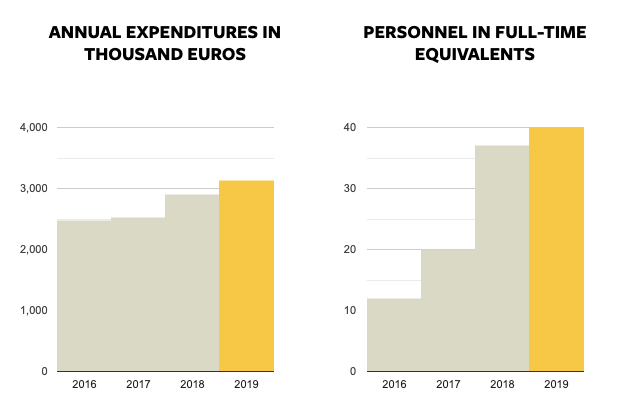Highlights
In Nicaragua, Solidaridad worked with BICU University to develop the first agroforestry cocoa diploma, giving priority participation to women and youth. We investigated cocoa varieties adapted to the area, and advanced capacity-building efforts around empowerment issues such as participation, leadership and gender. In Honduras, members of the national network of women in cocoa and chocolate learned to process and market cocoa products, leading to the launch of several women-led enterprises.

We achieved a key alliance with the Honduran government to develop and implement a national gender policy, including financial inclusion workshops for women. We also signed an agroforestry management agreement with the Honduran Forest Conservation Institute for the Lake Yojoa landscape. In Mexico, this was the fourth year of our Climate Smart Coffee Lab, with an increase from five to 24 quintals per hectare of fair trade coffee grown on renovated plots by an organic cooperative.

In Nicaragua, farmer field schools used a family-inclusive model to increase women’s participation in livestock production and farm management. Digital solutions integrated into Nicaragua’s projects provided access to real-time, tailored information to facilitate decision making and planning. Solidaridad’s integrated landscape management workshops in the country’s autonomous RACCS region resulted in the formation of a multi-stakeholder platform for deforestation-free livestock. Our Mesoamerican Palm Oil Alliance partners are also participating in this initiative.

The Mesoamerican Palm Oil Alliance (MAPA) facilitated significant sustainability achievements. This increased the commitment of stakeholders to improve productivity, reduce greenhouse gases, protect biodiversity, and stop deforestation. Led by the sector, the Zero Deforestation Declaration in Honduras had an amplifying effect across the region and commodities. MAPA was instrumental in the creation of RSPO national interpretation documents for the region. We harnessed RSPO remediation and compensation payments by palm oil companies in Guatemala with the expectation of leveraging other funds.

PanameriCaña is the region’s leading programme for sugar sustainability. Regionally, we began working with the largest holding groups in 2019, implemented the first gender and youth inclusive sugarcane productivity pilot, and convened an international conference on renewable energy. In Mexico alone, we achieved the first Bonsucro certification, began implementing the first smallholder productivity programme, and positioned Solidaridad as lead advisor to the main union as it modernizes its role.



